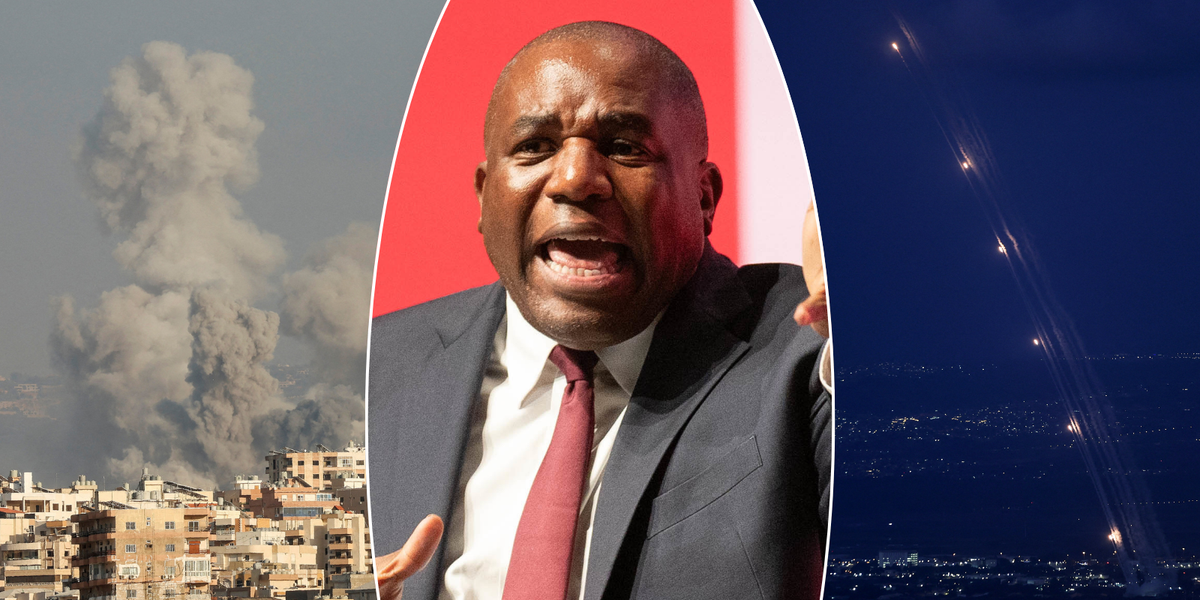British Troops in Lebanon: A Delicate Balance Amid Rising Tensions
As the geopolitical landscape in the Middle East continues to shift, British troops remain on the ground in Lebanon, engaged in a sensitive training program for the Lebanese armed forces. This deployment occurs against a backdrop of escalating violence and rising casualties, raising concerns about the potential for a "doomsday" scenario in the region.
The Role of British Troops
Reports indicate that dozens of UK personnel are currently in Lebanon, providing crucial training and support to the Lebanese military. Despite the recent surge in Israeli airstrikes, which have resulted in significant loss of life, British defense sources have maintained that there are no immediate changes to the scale of their training program. When questioned about the specifics of this long-running initiative, officials remained tight-lipped, emphasizing the sensitive nature of the operation.
Rami Mortada, Lebanon’s ambassador to the UK, highlighted the importance of the partnership between the British Army and the Lebanese armed forces. He stated, "The British Army is a very close partner to the Lebanese armed forces," underscoring the ongoing collaboration in training, equipment provision, and technical advice. This partnership aims to enhance Lebanon’s military capabilities, particularly in the context of managing tensions with Hezbollah, a powerful Iran-backed group operating in the region.
The Escalating Conflict
The situation in Lebanon has become increasingly precarious following a series of Israeli airstrikes that have left hundreds dead and thousands injured. On September 23, Lebanon’s health ministry reported at least 492 fatalities and 1,645 injuries resulting from the strikes, which Israel claims are aimed at "combat infrastructure" associated with Hezbollah. The conflict has intensified following a wave of attacks on Hezbollah devices, which the group attributes to Israeli intelligence operations.
Hezbollah has vowed to retaliate against Israel for what it describes as "sinful aggression." The group has launched its own rocket attacks, prompting Israel to activate its Iron Dome defense system to intercept incoming missiles. This ongoing tit-for-tat exchange has raised fears of a broader conflict that could engulf the region.
The Diplomatic Tightrope
The presence of British troops in Lebanon places the UK government in a challenging diplomatic position. Should Israel decide to mount a ground invasion of Lebanon, the UK would face significant pressure to respond. British officials are reportedly weighing their options regarding potential support for Israel, should it come under attack as a result of such an invasion.
This scenario presents a complex diplomatic dilemma, as protecting Israel against a defensive attack from the Lebanese armed forces would be far more complicated than responding to threats from Iran. The UK has long sought to maintain cordial relations with both Israel and Lebanon, but the current trajectory of the conflict threatens to complicate these efforts.
Calls for Ceasefire
In light of the escalating violence, Foreign Secretary David Lammy has called for an immediate ceasefire. However, the Lebanese ambassador has expressed concern that Israel appears to be moving in the opposite direction, further exacerbating tensions in the region. The call for de-escalation is crucial, as continued hostilities could lead to a humanitarian crisis and destabilize an already fragile Lebanon.
Conclusion
The situation in Lebanon remains fluid and fraught with uncertainty. As British troops continue their training mission amidst rising tensions, the potential for a broader conflict looms large. The delicate balance of diplomacy, military engagement, and humanitarian concerns will be critical in navigating this complex landscape. The international community must remain vigilant and proactive in seeking solutions to prevent further escalation and to support stability in the region.
